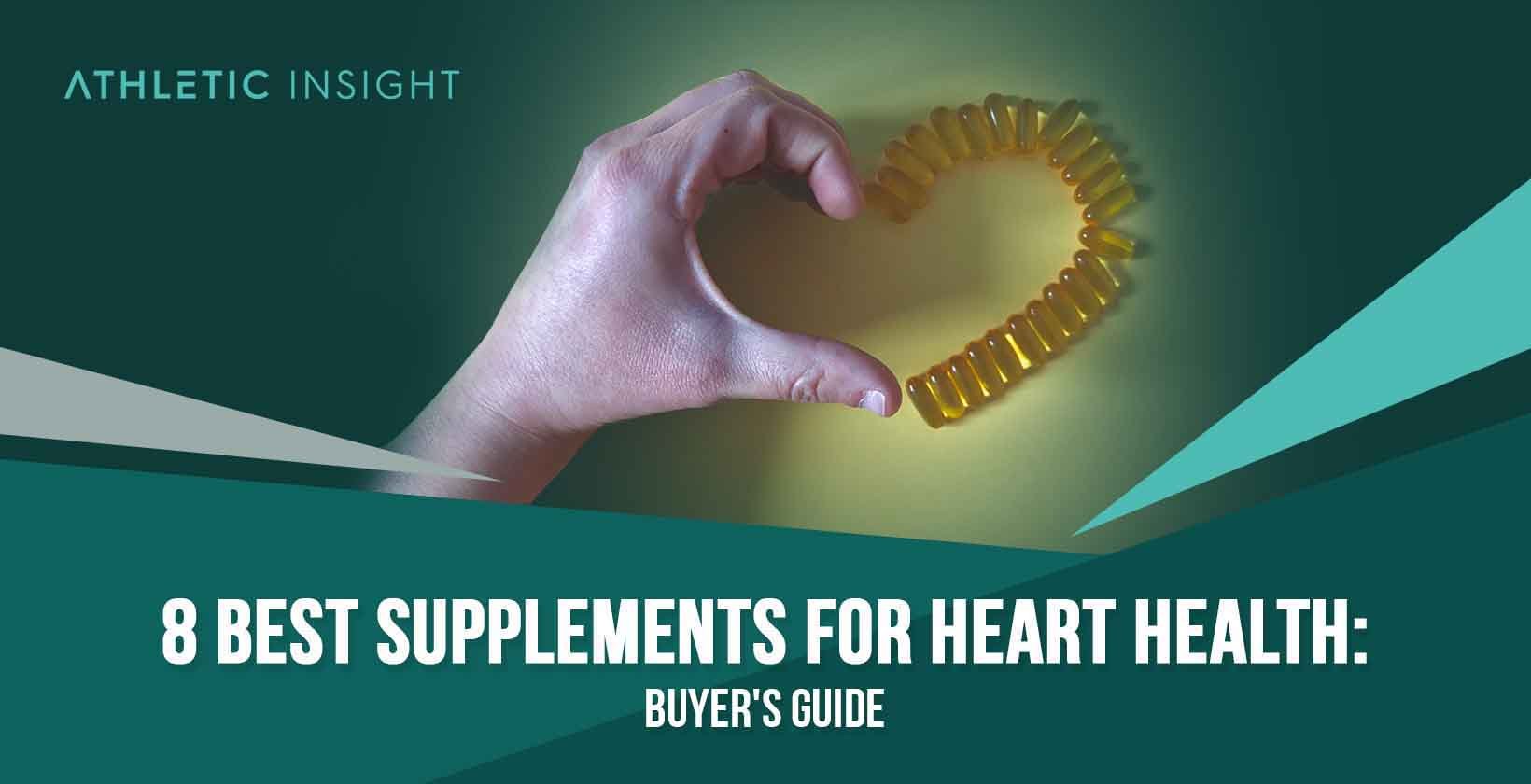Heart supplements are a category of supplements with ingredients that support heart health, including preventing coronary artery disease, strengthening heart muscles, and reducing the risk of stroke. The goal of these products isn’t to replace a healthy diet but rather to supplement nutrient levels that might be insufficient.
The best minerals and vitamins for heart health listed below meet a few requirements, such as supporting key heart functions and not having any significant side effects. Based on research, healthcare professionals recommend these supplements.
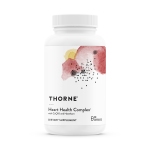
Strengthen Blood Vessels
Supports Cardiac Function
Improved Blood Pressure
Not all heart supplements are the same. It’s best to compare different options before choosing a supplement. Researching the mechanism of action and understanding how a supplement will address each person’s individual risks of heart disease is crucial in choosing the right product.
The following article will discuss the best heart health supplements, including magnesium, green tea, and garlic. It will also provide advice on how to select the right supplement.
1. Magnesium
Magnesium is one of the fifteen essential minerals the body needs to support key processes that keep it alive. Men need around 400 mg a day while women need 310 to 320 mg. This mineral supports heart health thanks to three different mechanisms of action.

First, magnesium blocks calcium absorption in the muscles. Calcium is necessary since it helps muscles contract, but magnesium needs to act as a balance to help muscles relax. This mechanism of action results in a more regular heartbeat.
Second, magnesium also plays a part in the process that results in the body releasing nitric oxide, a compound that supports blood vessel dilation. It allows proper blood flow and reduces the risk of stroke.
Lastly, magnesium has a complex effect on the body’s stress response. It helps regulate this response and can contribute to regulating blood pressure.
Taking a magnesium supplement daily with food is a safe and proven way to improve heart health. Side effects are rare, but they can include nausea, cramping, diarrhea, and interaction with some medications.
While the best magnesium supplements are a bit pricier, it’s possible to get a month’s supply from a quality brand like Nature’s Bounty, Life Extension, or MagWell for around $10. If you want the best option, you can’t go wrong with Thorne.
2. Green Tea
Green tea is an infusion made with Camellia Sinensis leaves and buds. It has many health benefits and has been a staple of traditional medicine for centuries.

There are different ways of consuming green tea. Brands like Bigelow offer loose tea for infusion, companies like Spring Valley make green tea extract, and it’s also possible to find green tea powder or matcha powder from brands like Jade Leaf.
It’s safe to drink up to eight cups a day. Since there are about 28 grams of caffeine in an eight-ounce cup of green tea, the most common side effect is feeling jittery.
Researchers believe that green tea supplementation is beneficial to heart health because it can help break down the plaques that build up in arteries and restrict blood flow.
Green tea also contains catechin and caffeine, two compounds that speed up the metabolism and help the body burn more fat. Being overweight increases the risks of heart disease, and drinking green tea is a safe way to shed a few pounds with a box of green tea costing less than $5.
3. Garlic
Garlic is a bulbous flowering plant that belongs to the Allium genus, along with onions, shallots, and chives. Incorporating garlic into one’s diet or taking a supplement with garlic extract is an excellent way to support heart health.

One of the main benefits of garlic is to lower cholesterol levels by reducing how much the body absorbs. Research shows that eating four cloves a day is just as effective as taking cholesterol drugs.
Garlic can also block angiotensin, a protein that sends signals to the heart and increases blood pressure. It also increases the production of nitric oxide and hydrogen sulfide, two compounds that help blood vessels widen and maintain their shape.
Another benefit is the regulation of blood sugar. Garlic blocks homocysteine, an amino acid that can increase blood glucose levels.
The main side effect of eating too much garlic is heartburn, but it’s possible to mitigate it by cooking garlic instead of eating it raw.
Incorporating garlic into one’s diet only costs a few dollars a week, and there are plenty of options to explore with sauteed garlic or infusions into spice rubs and butter. Some brands like Puritan’s Pride, Piping Rock, or Now Foods offer garlic extract for $10 to $12 a month.
4. Fiber
Fiber belongs to the carbohydrates category. Unlike other carbs, the digestive system is unable to break down fiber and turn it into sugar.
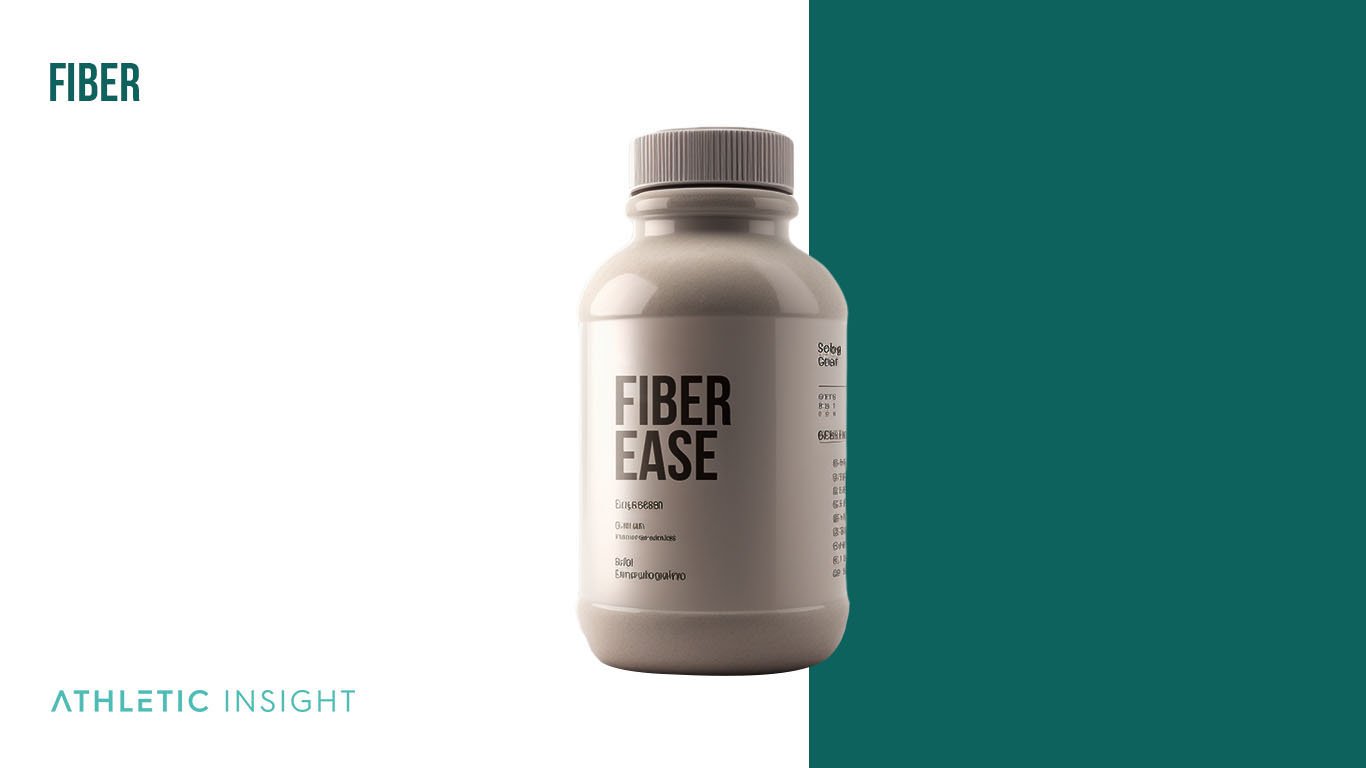
There are two types of fiber, including soluble and insoluble fiber. Soluble fiber helps regulate glucose and cholesterol levels while insoluble fiber mostly helps with transit.
By regulating blood sugar levels, soluble fiber can help prevent insulin resistance, control blood pressure, and create a healthy lipid balance in the blood. Insoluble fiber contributes to appetite regulation and can help with reaching a healthy weight.
On average, an adult needs 25 to 30 grams of fiber a day. Most Americans don’t get enough fiber in their diets. Side effects are negligible, and mostly include gas and bloating when consuming too much fiber.
Nature Made, Swanson, and Metamucil are excellent options for quality fiber supplements that cost $20 to $30 a month.
5. L-Carnitine
L-Carnitine or Acetyl-L-Carnitine is a nutrient the liver and kidneys produce naturally. This nutrient plays a crucial role in helping the body burn fat and produce energy.
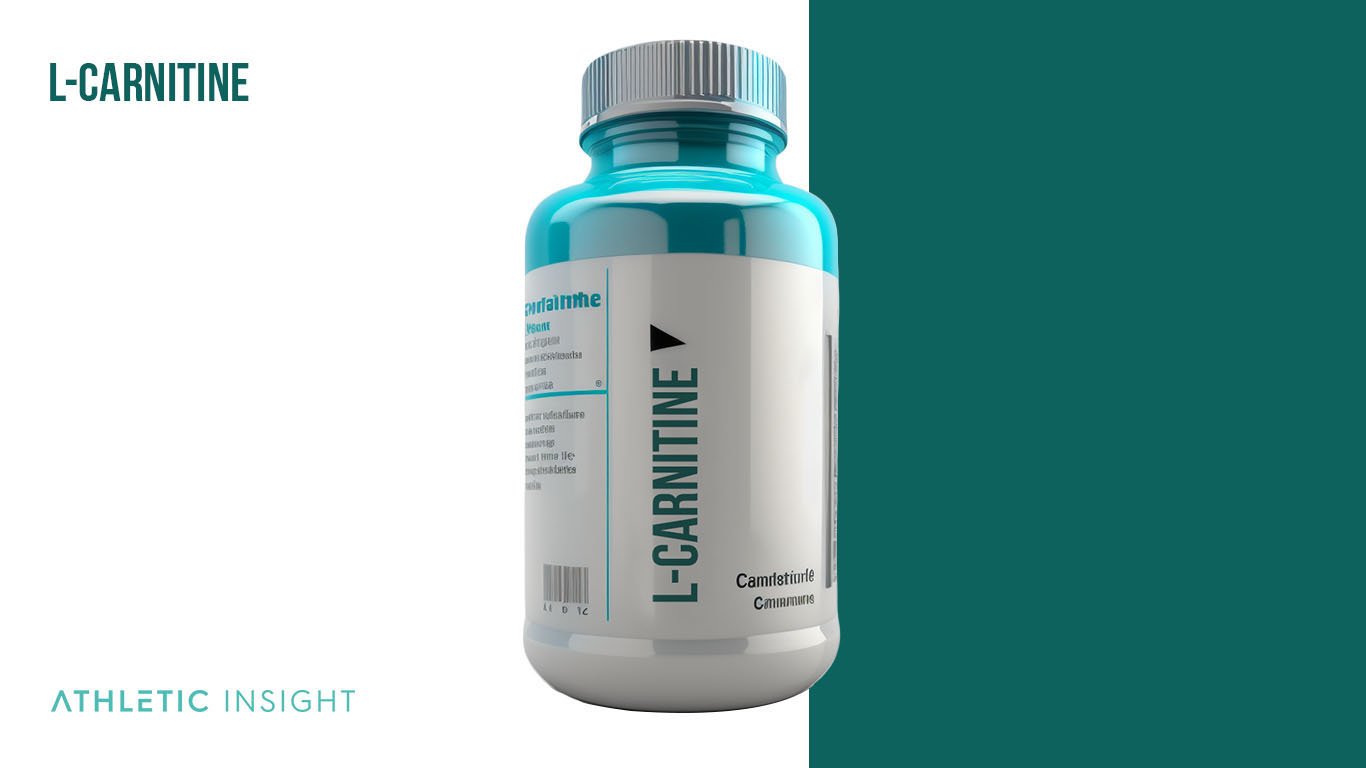
The body stores energy in the form of fatty acids. When fatty acids reach a muscle or organ cell in need of energy, they need to enter the cell where the mitochondria will turn the fat cells into energy through cellular respiration.
L-Carnitine is crucial because it helps fatty acids get inside cells. Low levels of L-Carnitine can prevent the body from using its energy resources and result in an accumulation of unused fat cells. Taking an L-Carnitine supplement can also help heart muscles get enough energy to maintain healthy blood pressure.
Adults need 15 mg of L-Carnitine a day. Side effects are possible if one exceeds this daily amount and can include nausea and cramps.
Most people get enough through their consumption of meat, but vegans and vegetarians can benefit from taking a supplement. Life Extension, Now Foods, and Nutricost are excellent choices and cost $20 to $30 a month.
6. Omega-3 Fatty Acid
Omega-3 fatty acids are a group of polyunsaturated fatty acids with several benefits. These fatty acids are naturally present in seafood, shellfish, and nuts.
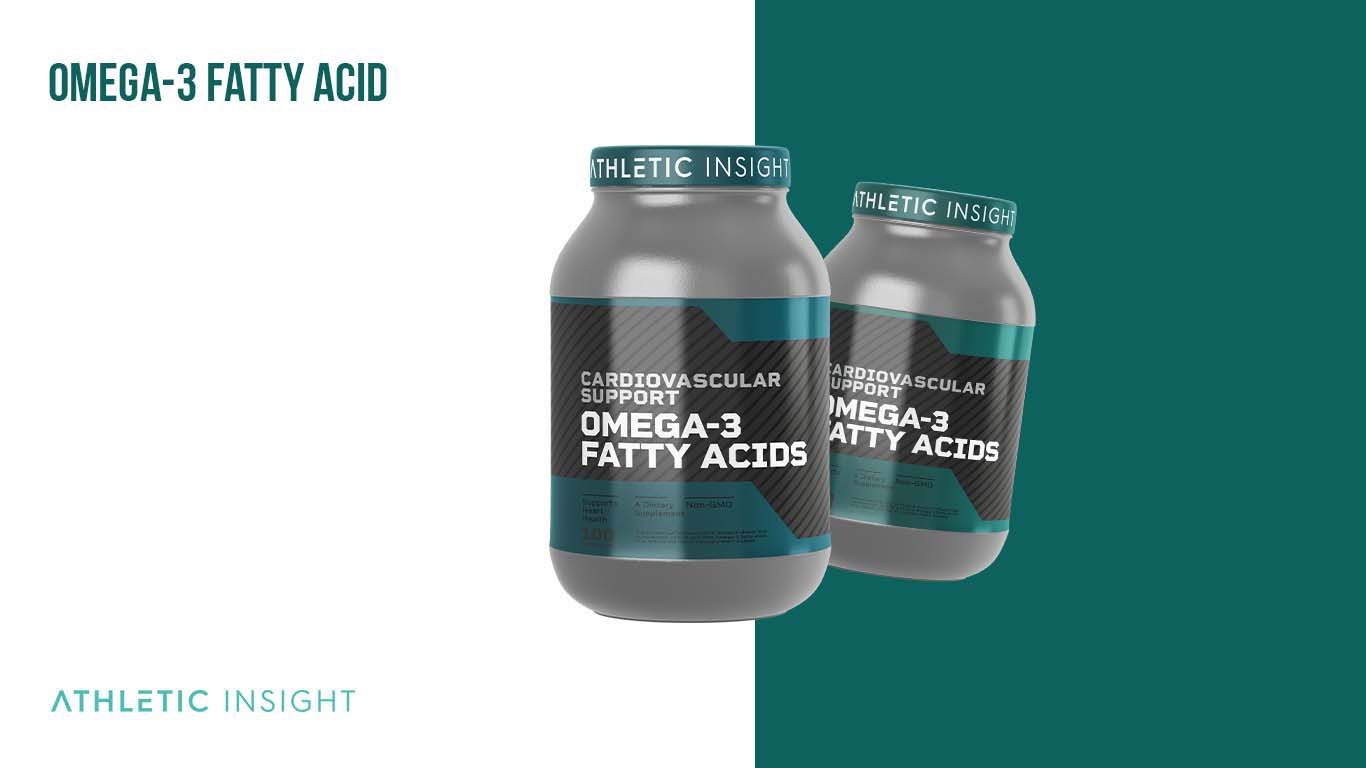
There are three types of Omega-3 fatty acids, including alpha-linoleic acid or ALA, eicosapentaenoic acid or EPA, and docosahexaenoic acid or DHA. Medical professionals recommend a total daily intake of 1,000 mg a day.
These fatty acids are building blocks for new cells. They also contribute to cell receptor health and help the body produce hormones.
When it comes to heart health, Omega-3 fatty acids support the production of hormones that regulate inflammation, blood clotting, and the ability to contract and relax artery walls.
It’s easy to incorporate Omega-3 fatty acids into one’s diet by eating more seafood and nuts. There are mild side effects associated with consuming too many Omega-3 fatty acids, including headaches, body odor, or heartburn.
It’s also possible to take gel capsules from brands like Nordic Nature or opt for a traditional cod liver supplement like what Carlson offers. However, supplements that use fish oil mostly contain EPA and DHA. Brands like GNC offer ALA supplements.
Prices start at $15 a month for an ALA supplement but can exceed $30 a month for an organic cod oil product.
7. Multivitamin & Mineral
Multivitamins and multiminerals are supplements that address vitamin and mineral deficiencies in one’s diet. With several studies suggesting that a majority of the U.S. population lacks vitamins, these supplements are an excellent all-around solution for heart health and other concerns.
While these supplements typically include the 13 essential vitamins, the following six are the best vitamins to strengthen the heart:
- Vitamin C helps regulate cholesterol levels.
- Vitamin E prevents lipoproteins from oxidation and forming plaque.
- Beta-carotene acts as an antioxidant that eliminates free radicals.
- Folic acid helps break down the amino acid homocysteine, a mechanism that prevents blood clots.
- Vitamin B6 improves capillary circulation and helps manage blood pressure.
- Vitamin B12 has a mechanism of action that is similar to folic acid and B6.
A multivitamin formula is ideal because some vitamins like folic acid, B6, and B12 work together. Plus, multivitamin supplements contain enough of each vitamin to meet one’s daily needs.
These comprehensive supplements sometimes include minerals as well. Three minerals are essential for a healthy heart:
- Magnesium and calcium regulate the contraction and relaxation of the heart muscles.
- Potassium prevents arteries from hardening.
Consuming high quantities of vitamins and minerals can result in nausea, increased urination, and muscle weakness. These side effects are rare.
There are many brands to consider for a quality multivitamin supplement, including VitaFusion, Nature Made, or Nature’s Way. Prices range from $10 to $20 a month for a daily supplement taken with food.
8. Coenzyme Q10
Coenzyme Q10 is an antioxidant naturally present in the body. Its role is to support cell growth, but it also contributes to heart health.
The recommended daily intake of Coenzyme Q10 ranges from 30 to 200mg. Age and health conditions like heart or kidney disease can result in low levels of this antioxidant and justify a higher dosage.
Research suggests that Coenzyme Q10 can prevent cholesterol oxidation, a phenomenon that results in plaque formation. It also improves blood pressure by reducing blood viscosity.
Plus, this antioxidant supports the mitochondrial function of the cells and helps the body use energy more effectively, which can contribute to maintaining a healthy weight and strengthening the heart muscles.
Side effects can include headaches, fatigue, and irritability. Brands like Solgar, Sunmark, and Botanic Choice offer affordable Coenzyme Q10 supplements that range from $10 to $20 a month.
What are Heart Health Supplements?
Heart health supplements are a category of products that contain nutrients and other compounds with mechanisms of action that support this organ.
The list of supplements includes magnesium, green tea, garlic, fiber, L-Carnitine, and others. The best supplements for heart health can help with different things, including:
- Supporting muscle function for the heart.
- Preventing or eliminating plaque in the arteries surrounding the heart.
- Regulating blood pressure.
- Helping regulate fat levels in the body.
What are the Criteria to Choose the Best Heart Health Supplements?
Factors such as price, effectiveness and reviews can help with choosing the best heart-healthy supplements.
- Price: Taking a supplement is an ongoing expense since most products come with a 30 or 60-day supply. Looking for a product with an affordable price is crucial since incorporating a supplement in one’s diet is best if it’s something one can do in the long term. However, supplements with a lower-than-average price might not contain quality ingredients.
- Effectiveness: Studies and medical research are excellent ways of assessing how well a supplement works. It’s also helpful to look at the list of ingredients to get a better idea of the quantities of active ingredients used to make the supplement.
- Reviews: Reviews from shoppers are another helpful indication. Some people might mention unpleasant side effects, or report that a supplement made a noticeable difference in how they feel.
How to Choose the Best Heart Health Supplements?
How to choose the best supplements varies from one person to another. It depends on overall health and personal goals.
If a person has a heart condition or another health issue, it’s best to ask a doctor for recommendations. A person who wants to prevent heart disease and adopt a healthier lifestyle can use research or even test different products to see what works for them.
Diet is another key consideration. For instance, a person who doesn’t eat meat often can benefit from an L-Carnitine supplement while someone who never eats seafood should take an Omega-3 supplement. Blood Work can reveal additional deficiencies in specific vitamins and minerals.
What are the Benefits of Heart Health Supplements?
There are many benefits to introducing heart-healthy vitamins and minerals into one’s diet such as reduced risk of developing heart disease, stronger heart, healthier blood pressur, normal choloesterol levels, increased lifespan and improved vitamin deficiencies.
- Supplements are often a more convenient and affordable way of addressing vitamin and mineral deficiencies compared to diet changes.
- They can reduce the risk of developing heart disease or suffering from a stroke. For patients with heart disease, supplements can help manage this condition.
- These nutrients contribute to a strong heart, healthy blood pressure, and normal cholesterol levels.
- Overall, a healthy heart can extend one’s lifespan and increase one’s energy levels and quality of life.
What Are the Risks of Taking Heart Health Supplements?
The supplements for heart health listed above are safe to take. However, high dosage or sensitivity to an ingredient can cause side effects.
Complications typically affect the digestive system with symptoms like nausea, heartburn, diarrhea, or cramps. Other side effects can vary from one supplement to another. For instance, green tea can cause agitation due to its caffeine content, while L-Carnitine and Coenzyme Q10 can cause muscle weakness.
Who Can Take Heart Health Supplements?
It’s safe to take a supplement for a person who is in relatively good health. However, there are many situations where it’s best to check with a doctor first:
- If a person is at risk for heart disease, they should see a specialist to get a personalized recommendation.
- Patients with heart conditions need to make sure a supplement won’t interfere with their medication or symptoms.
- People with kidney disease should stay away from some supplements that might be difficult to filter, such as products containing potassium or vitamins A, E, and K.
- High doses of vitamins A and niacin can also be dangerous for those with liver problems.
- Pregnant or breastfeeding women should generally stay away from supplements since most manufacturers don’t assess how their products can affect a baby’s development.
- For those taking medication of any kind, it’s best to check for potential interactions first.

Strengthen Blood Vessels
Supports Cardiac Function
Improved Blood Pressure
How Often Should Heart Health Supplements Be Taken?
Most supplements require a daily dose of one or two tablets or capsules. Each product has specific recommendations for taking the supplement on its packaging.
What Is the Importance of Heart Health Supplements?
Supplements can’t replace a healthy diet and exercise regimen, but taking supplements for the heart is beneficial given that a majority of the U.S. population is overweight and suffers from a vitamin deficiency.
Plus, heart disease accounts for about one death out of five in the U.S. It’s a prevalent issue, and taking a supplement is an effective way to prevent or fight heart disease.
What Are the Facts About Supplements for Heart Health?
The truth about heart supplements is that these products are generally safe to use and can have a significant impact on improving one’s health.
Here are a few noteworthy facts:
- Supplements are popular, with 75% of the U.S. population taking at least one of these products.
- A study showed a link between healthy magnesium levels and low risks of cardiovascular disease and mortality.
- A comprehensive review of over 800 studies found that antioxidants have a positive impact on heart health.
- Not all studies agree. A study looked at six popular supplements and found no significant connection to heart health.
Where Can I Buy Heart Health Supplements?
Most grocery retailers have a wellness section where you can shop for supplements, but your local pharmacy will likely have a larger selection. You can also find specialized stores that only sell supplements.
You can also purchase supplements online, but it’s best to stick to major eCommerce platforms.
Is a Prescription Needed When Buying Heart Health Supplements?
There is no need for a prescription when purchasing heart supplements. A doctor can recommend a supplement, but these products are available over the counter.
Are Heart Health Supplements Effective in Preventing Heart Attacks?
A heart attack happens when the blood flow to the heart stops. In most cases, arterial disease and plaque are responsible for stopping the blood flow.
Supplements can reduce the risk of suffering from a heart attack since some nutrients help break down plaque, prevent plaque formation, or regulate artery function.
However, there are many other factors to consider. Diet, lifestyle, and genetics can cause a heart attack even if a person is taking supplements.
Can Heart Health Supplements Increase Heart Rate?
Some supplements can result in a higher heart rate. For instance, Coenzyme Q10 can reduce blood viscosity while green tea can boost the heart rate with its caffeine content.
If a supplement seems to affect the heart rate, it’s best to stop taking it and check with a doctor.
Are Heart Health Supplements Good for the Heart?
Overall, the purpose of heart health supplements is to support the main functions of the heart and prevent heart disease. However, there are situations where supplements might be bad.
Supplements can help by regulating cholesterol levels, protecting the heart from plaque, and supporting functions like pumping blood.
A supplement might not be beneficial if it’s a low-quality product, if the dosage is wrong, or if the person is having an adverse reaction due to a pre-existing health issue.

Strengthen Blood Vessels
Supports Cardiac Function
Improved Blood Pressure

